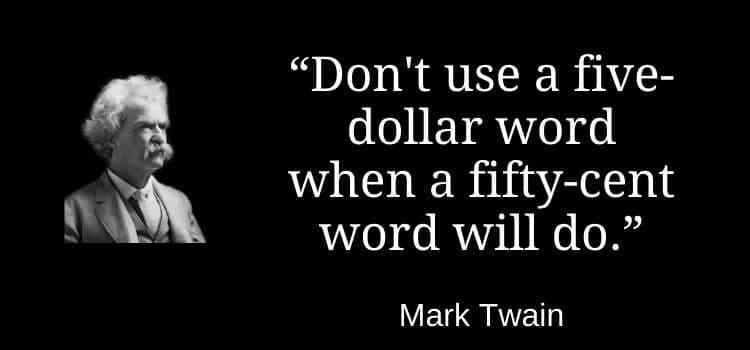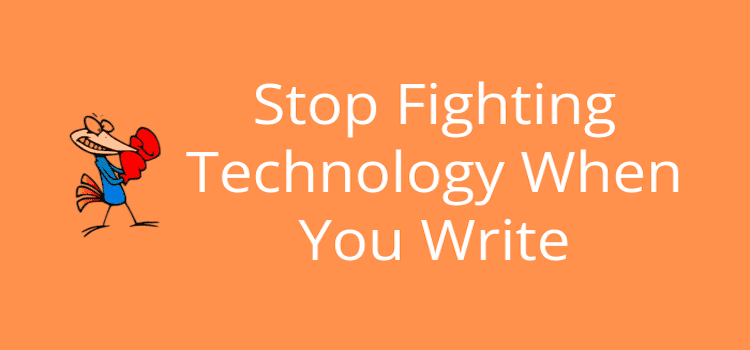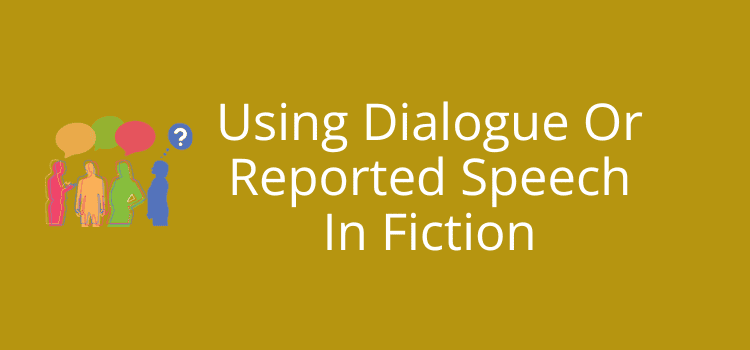
Using multitudinous big words in your writing will make you a sesquipedalian writer.
It is always a temptation for a writer to show off the vastness of their vocabulary.
There is nothing wrong at all with using big, long words in your writing.
But it is the use, style, placement, frequency, relevance, and the mixing of the formal and informal register that can cause difficulties for readers.
Big words in writing
Readers love learning new words.
But if they have to run off to a dictionary for a definition three times on one page, it will not make for an enjoyable read.
Another word for big words is polysyllabic.
It means using words of many syllables, which can become polysyllabic jargon.
Writers need to excogitate before they ameliorate a text with interminable and convoluted lexis.
Or, in other words, if you have an irrational fear of long words, writers need to think before using them.
In fact, there is a word for the fear of long words. It is hippopotomonstrosesquipedaliophobia.
According to Wiktionary, it is not a misspelled form of hippopotamus.
It’s the combination of the Latin prefixes hippopoto and monsto to exaggerate the meaning of big.
Nevertheless, nonetheless, however, and notwithstanding all that, I always think that a simple word like but will usually suffice.
The use of extended vocabulary
For a descriptive narrative, using the words nice, pretty, and lovely won’t make for an exciting read.
They’re functional but generalities. Imagine trying to capture a beautiful sunset with simply the adjective orange.
The fiery descent of the crimson orb, bleeding into streaks of lavender and gold, would have much more impact.
But in an article or blog post, keeping things simple is excellent writing.
Clarity is king. A text full of complex vocabulary might leave your reader reaching for a dictionary, halting the flow of your ideas.
In spoken English, politicians, in particular, love using as many long words as they possibly can.
When your job is to say as little as possible for an extended period of time, using long, big words that no one knows is the perfect way to achieve a positive result.
You can use varied vocabulary to engage your audience, but keep it clear enough for easy comprehension.
What is Eldrich?

In fiction, it is a fine balance. The word eldritch became popular with paranormal writers.
The definition of the word means weird and sinister or ghostly and perhaps derives from the word elf.
But when it is used too often, it loses its punch. Used once is fun, but twice or three times becomes boring.
Words such as menacing, threatening, ominous, forbidding, baleful, frightening, eerie, alarming, disturbing, disquieting, dark, and black offer plenty of choices to say the same thing.
Collocation
When using two or more adjectives, the pairing or collocation of words can come unstuck when using unusual word combinations.
Yes, a Ferrari is singularly puissant, splendiferous, and pricey. But maybe the words powerful and expensive might collocate better.
It is not that longer words of more than three syllables confuse readers.
There is no need to lower the level of your writing, thinking that readers might have a specific phobia for long words.
It is when and how you use words that can disrupt the flow of your text.
If you want to be sesquipedalian, that fine. Just know when to avoid circumlocution.
You don’t need to write with a fear of long words. Use them at the right time and for the right reason.
What is another word for thesaurus?

It is an old joke. But there is an answer.
thesaurus
noun
wordfinder, wordbook, synonym dictionary/lexicon; rare synonymy.
By whatever name, a thesaurus is a writer’s best friend.
I love the verb to liaise. Not because it is a lengthy word, but because I know how to spell it.
But how often would I use the word? Perhaps once or twice a year.
I would use work together, collaborate, network, link up, or hook up far more often.
Uncommon words are like salt and pepper. A little seasoning goes a long way, but too much spoils the meal.
Context in writing
It is in the context of use that a writer needs to be cautious. When you look for a word in a thesaurus, always check for formal and informal uses.
When you are writing dialogue, make sure the vocabulary you choose suits the character.
If your protagonist is a politician and wants to sound intellectual, then the twenty-dollar word perfidiousness might easily be one that you could use.
But if your main character is a down-and-out alcoholic detective, he would probably use more common words like bogus or shifty.
Similarly, if you are writing fiction using the third person omniscient point of view, you need to maintain a consistency of style in your narrative.
It is not the length or type of word that matters.
Long words such as superfluous and incomprehensible are extremely common.
But short words like mien, cavil, or descry belong to an overly formal writing style or voice.
To suddenly change the voice of a character or the narrator is very disconcerting for a reader.
Consistency and not trying to sound smart are the keys to good writing.
Be frugal with your five-dollar words
Mark Twain gave wise advice. “Don’t use a five-dollar word when a fifty-cent word will do.”
Here are some examples for you of my favorite five and ten-dollar words with a fifty-cent equivalent.
$5 word: Quintessential – $0.50 word: Typical
$10 word: Boondoggle – $0.50 word: Wasteful
$10 word: Brobdingnagian – $0.50 word: Huge
$5 word: Discombobulate – $0.50 word: Confuse
$5 word: Adscititious – $0.50 word: Additional
$5 word: Bindlestiff – $0.50 word: Tramp
$10 word: Umbriferous – $0.50 word: Shady
$5 word: Natation – $0.50 word: Swimming
$5 word: Octothorpe – $0.50 word: Hash as in #
$5 word: Equanimous – $0.50 word: Balanced
$5 word: Serpentine – $0.50 word: Wily
$10 word: Rebarbative – $0.50 word: Irritating
The denouement
Denouement? Well, okay. It’s the conclusion.
Acquiring and expanding your vocabulary is a never-ending process for a writer.
But learning to be careful in when and how you use your expanding vocabulary is far more important.
Why spend a five-dollar word when a cheap one will do the job?
Repetition is often a problem, particularly in a long text such as a novel.
Variety is essential.
But it needs to remain within the voice, style, and register of your writing. This is not such an easy task.
Summary
Finding the right word and using it in the right place is a must. But using a word sparingly is equally important.
In the end, it is not about big long words and short simple words. You will use both, of course.
Your task as a writer is to either inform or entertain. Both of these forms of writing need clarity and precision but with a sprinkling of surprise.
Use your extended vocabulary prudently to add some spice to your writing. But do not overdo it.
Keep your readers in mind. They want to enjoy reading your work, so do not make it painfully challenging for them to read.
Just because you can spell supercalifragilisticexpialidocious is not a good reason to use your longest word on every page.
But the meaning of the word is appropriate for this article. Supercalifragilisticexpialidocious means something to say when you have nothing to say.
Related reading: Morning Suit And Mourning Suit – Are Both Of Them Correct?



